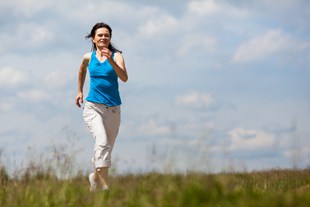What Can I Do to Help Prevent Osteoporosis?
1. Get Up and Get Out
Taking part in regular weight-bearing activity (at least 30 minutes per day, five times a week) helps bone become stronger and slows down the bone thinning that occurs as we age.
Spending at least ten minutes outdoors in the sun allows your body to obtain the vitamin D that it needs to promote healthy bones. Vitamin D is also in foods such as fatty fish and egg yolks, so do incorporate these into a healthy diet.
2. Check Your Calcium Intake
Many adults do not take in enough calcium in the diet and although dairy products contain the highest amounts of calcium, it is also found in lower fat options such as green leafy vegetables, seaweed, seeds, nuts and legumes.
3. Quit Smoking
Smoking was identified as a risk factor for osteoporosis more than 20 years ago. The more you smoke and the longer you smoke for increases the risk for osteoporosis, fractures and how long fractures take to heal. Do take advantage of any local support services that are available in your quest to quit.
4. Watch Your Alcohol Intake
Consuming a high alcohol intake can contribute to bone thinning, although some scientists now suggest that a glass of wine a day may help to maintain stronger bones in post-menopausal women.
5. Enjoy Sex
Having lower levels of estrogen and/or testosterone in the body are linked with faster rates of bone thinning. Enjoying sex regularly is one way to keep sex hormone levels up, or a hormone therapy such as HRT can help maintain hormone levels in the body as you age.
6. Check Your Bone Density
Having a DEXA scan is an easy and fast way to check if your bones are thinning. This is particularly helpful if you are older, have had an early menopause, or have an increased risk of fractures.
National Health and Medical Research Council (NHMRC) also recommend that if you have had a fracture from minimal trauma, a possible cervical fracture that causes back pain, height loss or spine curvature, you should request a DEXA scan. You should also request a scan if you have a family history of osteoporosis or fractures, taken corticosteroids for more than three months, have a low body weight, hypogonadism, smoke, have a high intake of alcohol, or fall regularly.
Although osteoporosis may run in your family, or you may suffer with health conditions that increase the risk of osteoporosis, maintaining a healthy and active lifestyle can still help prevent the onset of, delay the onset of, or even slow down the progression of osteoporosis.






